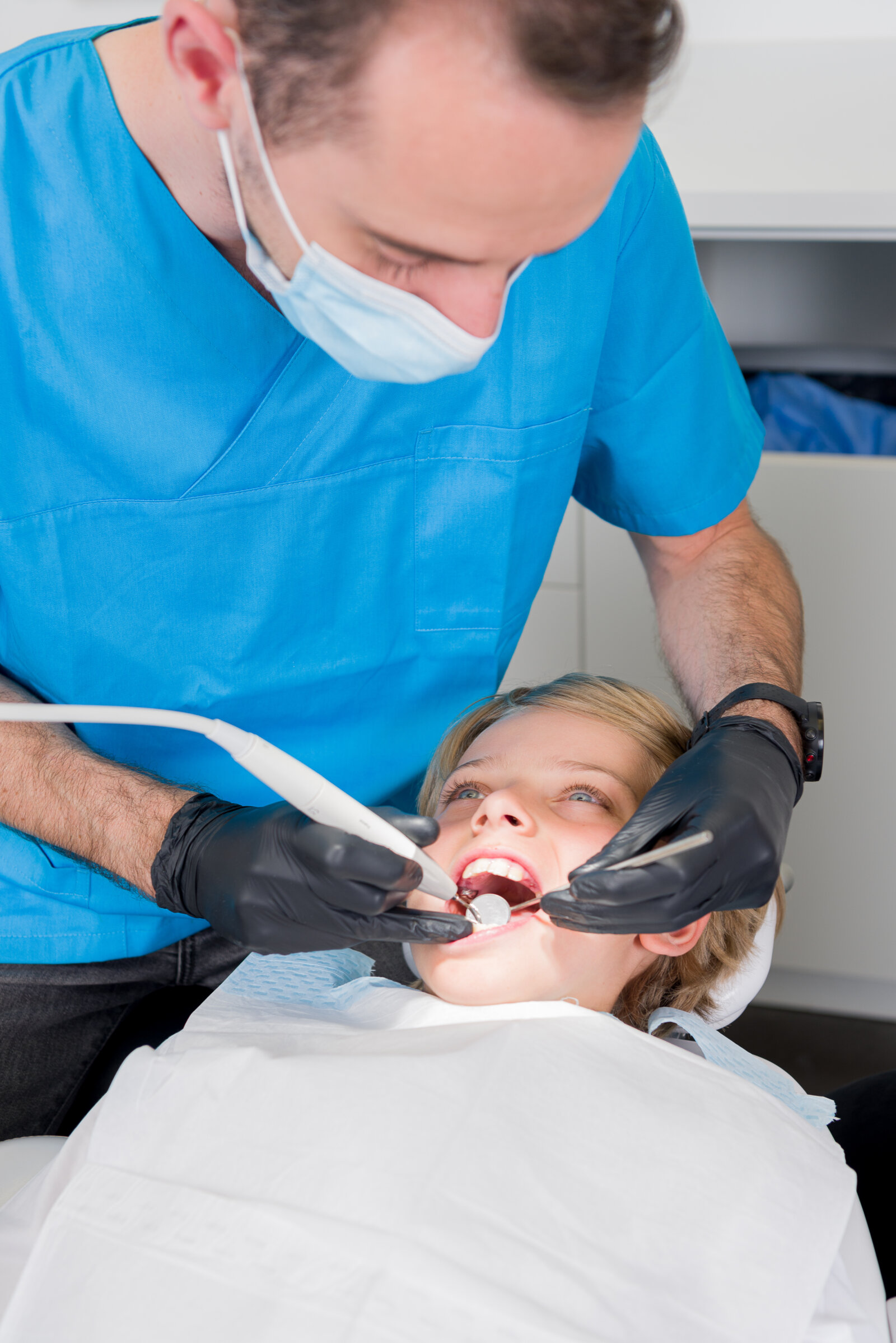Children's dental treatments
Many patients, unfortunately, have less than fond memories of dental visits during their childhood. They can sometimes be so bad that certain traumatic experiences remain with us, resulting in permanent terror of going to the dentist.
What is the process if your children need to visit the dentist?
At MOND, we therefore understand how important it is to build a good relationship between the patient and dentist from the very first visit at a young age.
- Early years
In most children, all of the baby teeth are present 30 months after birth. The first teeth often begin to push through at 6 months of age, while the last baby molars appear between the age of 24 and 30 months.
This period can sometimes be accompanied by some pain, but usually passes without any serious issues. During those first months, we advise young parents to wipe the first teeth clean with a net cloth, since a toothbrush is often still too big and cooperation can often be quite difficult. A special finger toothbrush can also help.
- From the age of 2 years
From the 2nd year of life, it is a good idea to occasionally visit a (paediatric) dentist. This is a fun introductory meeting where the paediatric dentist mainly focuses on getting the child used to visiting the dentist. This includes their first steps in the surgery, to briefly crawling onto the chair, possibly lying down flat and, in the best case, allowing the dentist to have a look in their mouth. This should all go at the child's pace so that it remains a fun experience at all times.
Some advice on feeding may be given and, if possible, a brief examination will determine if any unwanted behaviours such as thumb sucking or use of a dummy need to be phased out to allow proper development of the mouth, teeth and tongue.
- Benefits of visiting the dentist up to the age of 18
This visit is repeated every 6 months and is pretty much fully reimbursed until the age of 18. At MOND, we therefore want to encourage children and their parents to engage in preventive care so that we can help detect any unpleasant dental issues in good time and hopefully manage to avoid them.
When problems do arise due to falling and knocking teeth or a cavity, the child is already used to going to the dentist and issues can often be easily solved thanks to good previous experiences and an explanation of what is needed. This way, dental visits remain a pleasant experience and we avoid adult patients becoming anxious in the future.

Developmental issues
Some children, unfortunately, suffer from an insufficiently developed enamel on certain teeth, something we might call “cheese molarization” or “molar-incisor hypomineralisation” if the incisors are also affected. These children often need extra guidance and follow-up care, so we are happy to refer them to one of our paediatric dentists to set up the appropriate treatments.
Multiple caries
When young children consume a lot of sugar through food or drinks, this can very quickly cause severe deterioration of the milk teeth, resulting in many cavities. This often happens much faster than with adult teeth. These cavities are also called caries.
If the formation of cavities is extensive, we may need to refer the child to a specialist who carries out dental treatments under general anaesthetic. By treating the child under general anaesthetic in the hospital, the aim is to get all of their problems under control at the same time.
Intake of sugar should therefore be avoided as much as possible in young children, since the consequences can result in severe tooth pain, abscess formation or traumatic experiences at the dentist.
Orthodontics and speech therapy
Problems with the position of the teeth and jaws can sometimes cause speech or swallowing problems at a young age. This may be due to prolonged thumb sucking, use of a dummy, an immobile tongue or distorted position of the jaw.
If the dentist identifies this in time, a referral to an orthodontist (jaw relation) or speech therapist (speech problem) may be appropriate. Early treatment of these problems can often avoid the need for intensive treatments in the future.
Is a children's dental treatments something you’re interested in?
Check out the practices that offer children's dental treatments below:
MOND Groen Kwartier
Pater Pirestraat 50,
2018 Antwerpen
MOND Paro Plus
Louis Marcelisstraat 25a,
1970 Wezembeek-Oppem
